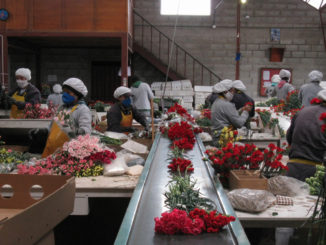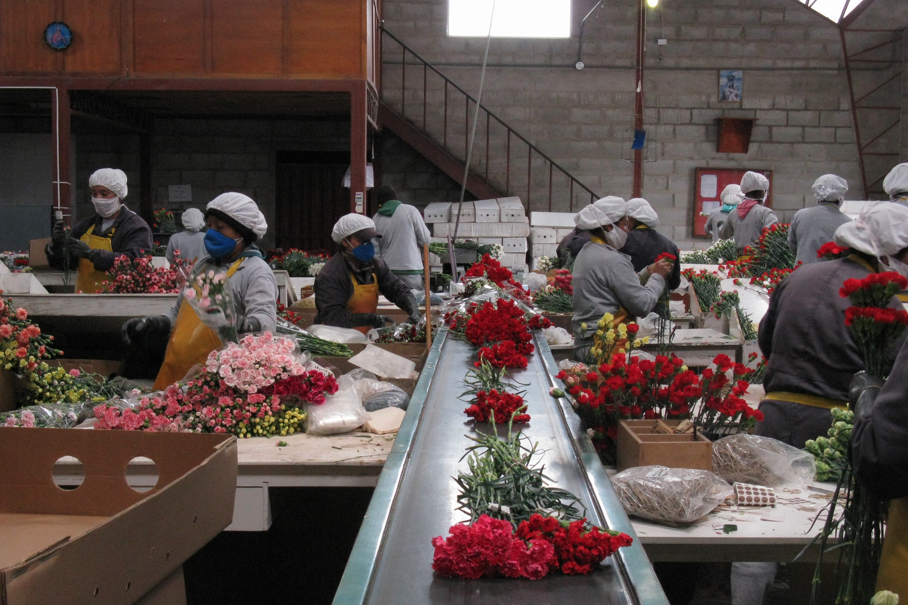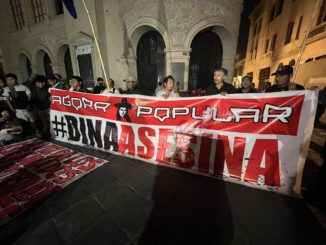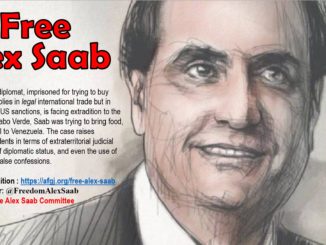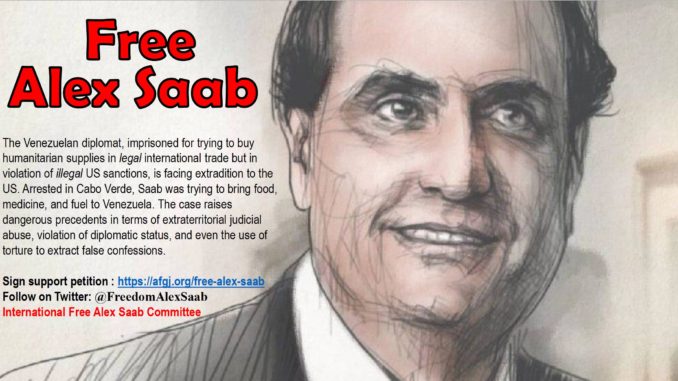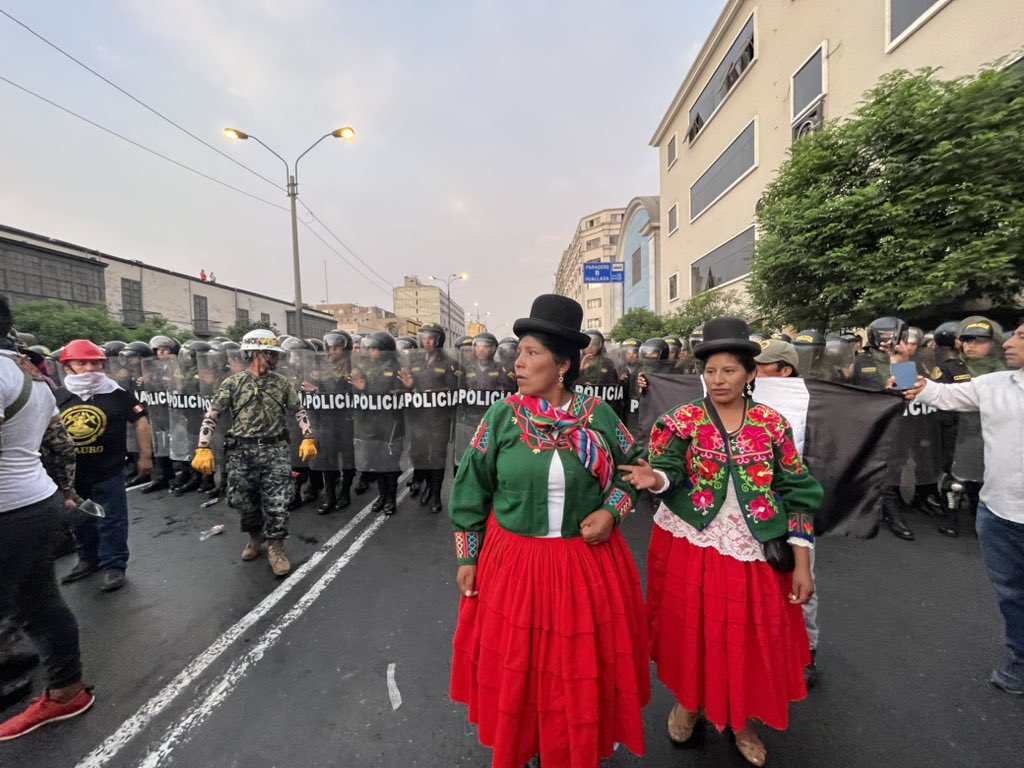
Editor’s Note: This article originally appeared in The Canada Files.
Two months on from the coup against Peru’s democratically-elected President, Pedro Castillo, Canada is providing key support for a regime responsible for the deaths of 58 civilians (as of February 6, 2023).
There is a dramatic contrast between Canada’s chummy relationship with Peru’s de facto authorities and its increasingly hostile treatment of socialist Nicaragua.
President Pedro Castillo’s December 7, 2022 ouster and political imprisonment was followed by three massacres, with teenagers among the dead. 1,229 reported civilians have been wounded, according to Peruvian health authorities, and an unknown number of arbitrary and mass arrests.
Protests are ongoing, with 72 active roadblock points on national roadways, and an indefinite strike which began on January 4, 2023 in regions of southern Peru continues. A recent poll by the Institute of Peruvian Studies showed the Congress with 9 per cent approval rating and 71 per cent disapproved of Dina Boluarte’s presidency. The unrest ignited throughout the country in rejection of the removal and imprisonment of Castillo, and subsequent installation of Dina Boluarte, as well as in rejection of the right-wing Congress, has not gone unnoticed by Canada. Global Affairs Canada has published several travel advisories since the start of the anti-coup mobilizations.
Global Affairs warns of a “volatile” political situation and acknowledges “many casualties”, attributing deaths to “clashes between protestors and the security forces”. In December 2022, mobilizations intensified to the point where Canadians became stranded and at least four humanitarian flights were organized to evacuate Canadian nationals.
Canada expressed ‘deep concern’ in a tweet by Ambassador Louis Marcotte on the day of President Castillo’s removal and its recognition of Dina Boluarte, who was sworn in within hours of Castillo’s arrest, was made known shortly after. Foreign Affairs Minister Melanie Joly then ‘reiterated’ her administration’s “support for the transitional government of President Boluarte” during a call with Peru’s Foreign Minister, Ana Cecilia Gervasi.
Ottawa’s actions closely resemble those of 2019, when the Trudeau government and other CORE group members were first to recognize the coup regime of Jeanine Añez in Bolivia and silent before the brutal repression which accompanied the coup. The similarities between the two cases are countless and it’s worth noting that Canada has the same ambassador for both Peru and Bolivia.
Inter-American Commission on Human Rights
The state terror unleashed on protesters and civilians prompted an observation visit to Peru by the Inter-American Commission on Human Rights (IACHR). Canada acknowledged the visit and report to the Organization of American States (OAS) by the IACHR at a Special Meeting of the OAS Permanent Council. The IACHR is currently drafting the relevant report but published a press release on January 27, 2023, previewing its findings.
The Commission “condemned violence in efforts to disperse demonstrators” and “mass arrests” during the raid on the National University of San Marcos, in Lima. It noted reports of “excessive use of force by law enforcement” by civil society organizations, arbitrary arrests and complaints of “verbal attacks including the use of intimidating, derogatory, racist, and humiliating language” by police who impeded lawyers’ ability to access their clients. Amid reports of sexual violence by officers against women detainees, the IACHR stressed categorical condemnation of the practice as a tool to exercise control. The statement also issued a reminder on the rights of persons deprived of liberty.
Ottawa’s relative silence on the Peruvian state’s widely reported abuses is particularly eyebrow raising given Canada’s good graces towards the IACHR, which derives its mandate from the OAS — an intergovernmental body dominated by the United States and Canada.
OAS
The OAS has in no way contributed positively to the situation in Peru and should be investigated for its role in the December 7, 2022 coup. A High-Level Group delegation of the OAS Permanent Council visit just two weeks prior to Castillo’s ouster failed to avert the crisis. Castillo himself had gone directly to the Secretary General in search of support from the organization.
Fast forward to January 30, 2023, and with no end in sight for Peru’s turmoil, a Special Meeting of the OAS Permanent Council to address the situation was held, at the request of four member countries.
The brief remarks delivered before this council by Canada’s representative to the OAS, Ambassador Hugh Adsett, referred to the IACHR’s “conclusions” but avoided elaboration. Adsett offered no condemnation of the crimes committed against the Peruvian population, as Canada has on many other occasions, particularly when the OAS Permanent Council has met to address the political situations in Nicaragua and Venezuela. Adsett also participated in the gutting and re-writing of a draft declaration, which in its final version received the approval of all members of the aforementioned council, including the United States, the Peruvian regime itself, and with the blessing of OAS Secretary General Luis Almagro.
A call for prompt, supervised elections in Peru is central in the final document, as well as a call for the Peruvian Public Ministry to investigate, prosecute, and punish “those responsible for violations of human rights” — with no mention of security forces and their use of repression against the population. The “excessive use of force by security forces” was cited in the earlier version first drafted by Colombia and Antigua and Barbuda, but was modified in the carefully-worded final version. This version purposely omitted all reference to security forces and didn’t attribute violence or human rights violations to the state, leaving the declaration open to interpretation.
In the face of a mountain of irrefutable evidence of flagrant human rights violations by the Boluarte government, the OAS has expressed its “full support” for Peruvian President Dina Boluarte, a position it shares with Canada and the United States.
Canada and the OAS Target the Sandinista Revolution
During October 2022, just two months before the coup in Peru, Lima was the host of the OAS General Assembly. ‘Human rights’ in Nicaragua topped Foreign Minister Melanie Joly’s agenda at a peculiar time, given the absence of any significant political development in the Central American country that would warrant special attention.
Canada assumed the lead in the coordinated attack on Nicaragua’s Sandinista government in 2021, similar to the shift in U.S.-provided tasks in 2018 when then-Foreign Minister Chrystia Freeland led the charge against the Bolivarian government of Venezuela through the now defunct ‘Lima Group’.
Since receiving the baton from Washington in 2021, Joly has made numerous statements aimed at Nicaragua’s democracy and has sought to escalate the regional and international campaign of aggression. This comes in addition to the illegal sanctions regime first introduced by Ottawa in June of 2019. According to Global Affairs, sanctions have been enacted “in response to gross and systematic human rights violations that have been committed in Nicaragua.”
The result of the October OAS General Assembly meeting in Lima was a strongly-worded resolution with a long list of action items to address a non-existent political and human rights crisis in Nicaragua.
Canada has arbitrarily and illegally imposed three rounds of unilateral sanctions against the country which has enjoyed years of political stability, and whose citizens feel the most peaceful out of all countries of the world, according to a Gallup poll.
Canada’s Interests in Latin America
Canadians ought to question why Canada is harassing a country at peace, with the lowest levels of violent and transnational crime in Central America while leading the world in gender parity, as it rubber stamps the excessive use of force and extrajudicial killings by the widely-hated regime in Peru.
The reality is that Canada never wanted Pedro Castillo in power to begin with and saw better allies in his neoliberal opponents. With CAD $9.9 billion in assets, Canadian companies are Peru’s largest investors in mineral exploration. The country’s mining and resource extraction firms are always attentive to political shifts in Latin America because of the direct effect of policy changes on their ability to operate and secure contracts. The ambassador himself made an appearance alongside his constituents of the mining industry, including Hudbay Minerals, at the Canada Pavilion at the PERUMIN 35 Mining Convention.
Post-coup, Louis Marcotte, Ambassador of Canada to Peru and Bolivia, was quick to meet with Peru’s Mining Minister, Oscar Vera Gargurevich, to promote investment by Canadian firms in mining and hydrocarbon, as well as in the development of electromobility. Vera Gargurevich confirmed his ministry’s participation in the infamous PDAC mining convention in Toronto, Ontario, to be held in March, where Peru will seek new foreign investors.
The president of the Peruvian delegation to PDAC 2023, Óscar Benavides, has said that his country’s representatives will be reassuring investors at the Toronto convention and explain the situation in his country and what’s being done to solve it.
Ottawa’s actions amid flagrant abuses by the Peruvian state are consistent with its track record of legitimizing unpopular neoliberal regimes despite overt and well-documented violent repression (Ivan Duque, Juan Orlando Hernandez, Lenin Moreno, Guillermo Lasso, Jeanine Añez). At the same time, it has worked to undermine the governments of Evo Morales, Daniel Ortega, Nicolas Maduro, and Manuel Zelaya, all of which guarded the sovereignty of their respective countries and resources against foreign exploitation. These leaders, through nationalization, have insisted that resources be used to the benefit of their own populations and not for corporate profits.
Similarly, Castillo ran on a campaign which promised to reassert popular control over Peru’s natural resources through nationalization. Despite the difficulties Castillo encountered once in office, his opponents feared that he would renegotiate contracts to the benefit of the Peruvian state over foreign companies—which would affect Canadian plunderers.
Canada Out of Peru
Canada is currently urging Peru to hold new elections which appear likely to be organized by an illegitimate administration and Congress, with involvement of the OAS. In any such scenario, Castillo’s former Peru Libre party may face obstacles in running a candidate, as the party continues to be a target of political persecution and media smear campaigns.
Despite the absence of rule of law and countless human rights violations, it’s unlikely that Trudeau will cease support for Peru’s unelected regime, particularly given his track record in propping up Jeanine Añez and the make-believe Juan Guaido administration. But like Añez, Boluarte could be swapped out any day. A more permanent enemy of the Peruvian people is the Canadian government, Trudeau himself and Canadian financiers in natural resource extraction, who unabated will continue to conspire and sacrifice lives, in order to plunder Latin America and the Caribbean.
However severe the situation becomes in Peru, declarations or intervention shouldn’t be welcome from the human rights-violating Canadian government, which in addition to its historical and ongoing crimes against Indigenous peoples, maintains death sanctions on two dozen countries, at the direction of Washington.
Camila Escalante is a Latin America-based reporter and the editor of Kawsachun News. Escalante was reporting in Bolivia through the year of resistance to the Añez coup regime, which culminated in the presidential election victory of Luis Arce in October 2020. She can be followed on Twitter at @camilapress.

